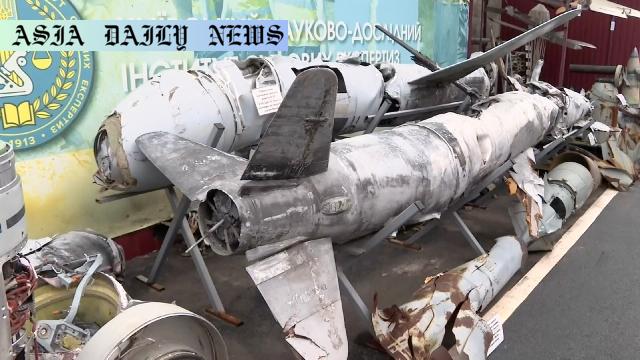North Korean missiles: Russia launched 95 North Korean-made ballistic missiles targeting various regions of Ukraine over 19 months, causing significant casualties.
North Korean missiles were used by Russia to attack Ukraine with 95 strikes during a 19-month period.
Missile strikes killed 20 people and injured 154, marking increasing casualties.
Russia deepened military ties with North Korea and procured more missiles in 2024.
Despite improved accuracy, over half of the missiles failed to hit intended targets.

Escalating Russia-North Korea Military Cooperation
Over the past 19 months leading up to March 2024, Russia has utilized 95 North Korean-made ballistic missiles to target Ukraine, according to an analysis by Ukraine’s military intelligence. This rising trend highlights Moscow’s deepening military collaboration with Pyongyang amidst the ongoing conflict. The missiles, identified as KN23 and KN24 short-range ballistic systems, have been aimed at key Ukrainian regions, including Kyiv, Dnipropetrovsk, and Poltava. Despite their improved accuracy, more than half of these missiles either failed mid-flight or landed in vacant territories, causing no significant damage.
Nonetheless, the attacks have been devastating in many instances. In August 2024, a missile strike in Kyiv destroyed a residential house, killing a father and his young son. Similar attacks have inflicted damage in other urban areas, including an April 2024 incident where a missile hit an apartment block, resulting in 12 fatalities. These events underscore the increasing human cost of Russia’s aggression, magnified by its procurement of foreign weaponry like North Korean ballistic missiles.
Statistics of Damage and Casualties
The analysis estimates that these attacks have led to more than 170 casualties, with 20 deaths and 154 injuries reported. It also reveals that Moscow acquired a total of 148 ballistic missiles from North Korea in 2024 alone, with plans to receive an additional 150 in 2025. The availability of these weapons has enabled Russia to persist in its assault on Ukraine, demonstrating the significant role that North Korea plays in bolstering Russia’s military capabilities.
The use of these missiles also raises questions about their quality and reliability. While improved precision has caused incremental damage, frequent failures suggest limitations in North Korean weapons technology. Yet, the persistent use of these armaments shows that Russia remains undeterred, leveraging these foreign-made ballistic systems as part of its strategy to exert pressure on Ukraine.
Implications of Deepening Alliances
Moscow’s reliance on Pyongyang’s armaments signals a troubling trend in international geopolitics. The increased collaboration between Russia and North Korea could embolden Pyongyang to further its ambitions in weapons development. Additionally, the alliance raises questions about how international sanctions and monitoring systems fail to prevent such deepened cooperation.
From a humanitarian perspective, these missile strikes are a stark reminder of the human toll of modern warfare. While governments and military strategists make deals and develop technologies, civilians bear the brunt of these conflicts. Ukraine’s resiliency amid these challenges reflects the harsh reality of geopolitical power plays and their local repercussions.



Commentary
Mounting Geopolitical Concerns
As the partnership between North Korea and Russia strengthens, the repercussions of their collaboration are becoming more evident on the global stage. This growing alliance poses significant challenges to the existing global balance of power, as it reflects a shift towards deeper cooperation among nations that often challenge international norms. The unprecedented use of 95 North Korean-made missiles during Russia’s ongoing conflict with Ukraine underscores a new reality in warfare where alliances transcend geography and principles.
The Cost of Conflict on Civilians
The human cost of these missile strikes is deeply troubling. Civilians, often unsuspecting and unprotected, bear the brunt of these violent acts. Families have been shattered, such as the tragedy in August 2024 that claimed the lives of a father and his young son. These stories compel us to confront the harsh realities of war, which continues to erode basic humanity in favor of political and military gains. For those in Ukraine, the ongoing assaults signal an unrelenting threat to their safety and sovereignty.
Global Response and Future Implications
This situation also draws attention to the need for more robust international measures to counter the proliferation of dangerous weapons and their circulation among rogue states. The reliance on North Korean missiles signals a potential failure in containing or mitigating Pyongyang’s ambitions. The global community must work together to address these challenges, foster discussions on sanctions reform, and develop ways to uphold the principles of international peace and security.
Ultimately, while geopolitical strategies continue to evolve, the focus must remain on minimizing the impact of such conflicts on civilians and ensuring that those responsible for such aggression are held accountable for their actions. The Ukraine case serves as a painful reminder of the costs of neglecting early warning signs in global security.